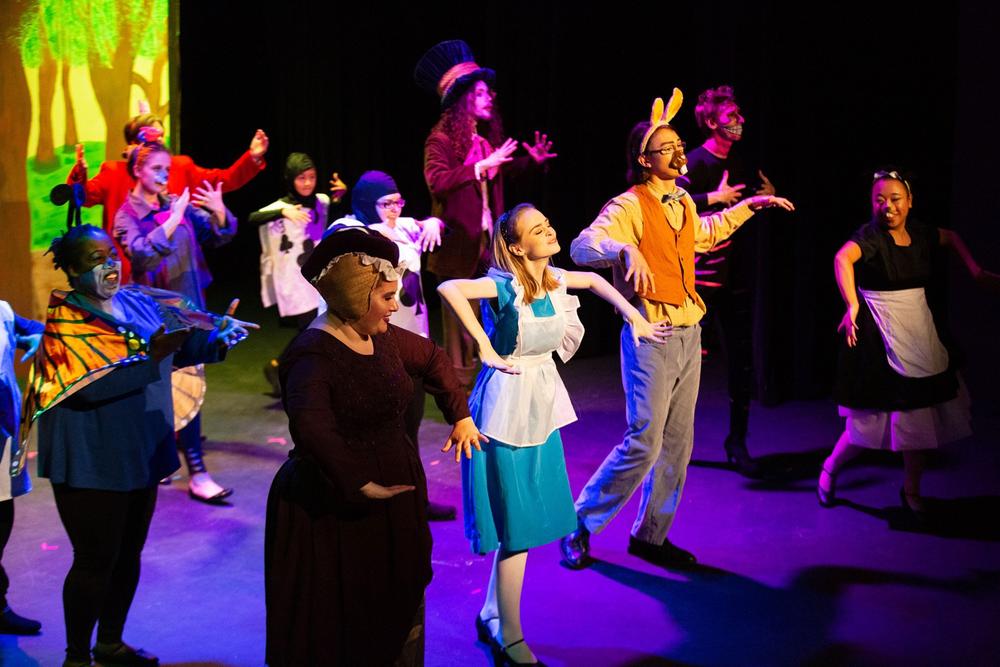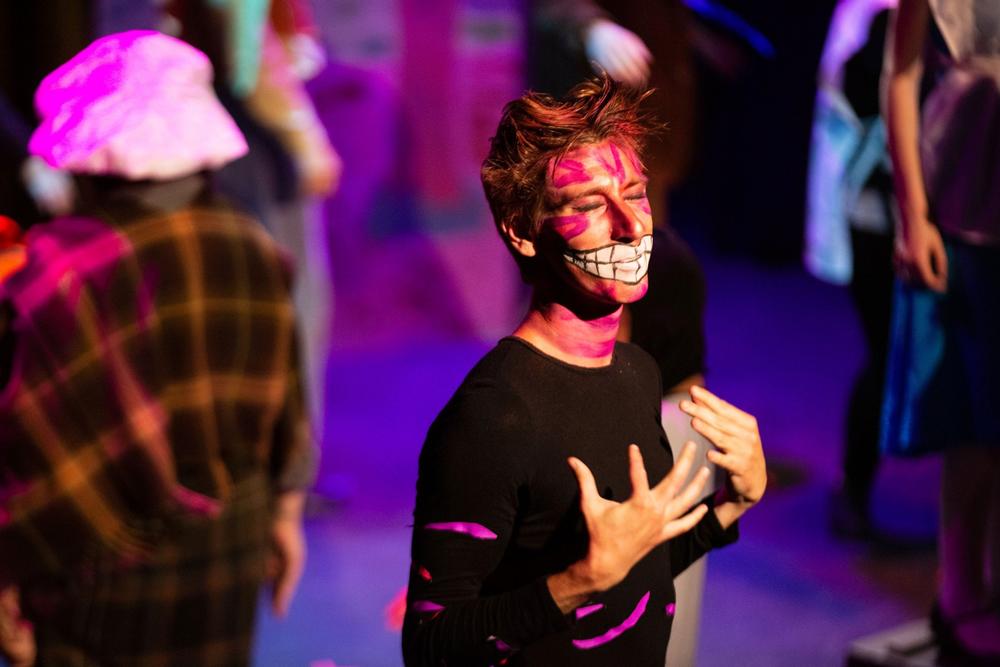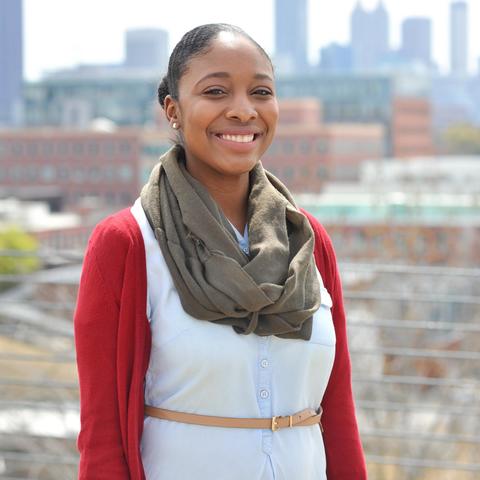Section Branding
Header Content
A Theater Experience In Athens For the Deaf And The Hearing
Primary Content
Live stage productions and plays can frustrate the deaf community. That’s why a pair of University of Georgia alumni decided to create their non-profit, Hands In! It’s a theater company in Athens that produces original plays in American Sign Language.
Hands In! co-founders and directors, Haley Beach and Amara Ede, want to bridge the gap between the deaf and hearing worlds by spreading awareness of ASL in dramatic media. Beach and Ede spoke with On Second Thought host Virginia Prescott about their latest production, Wanderland. They also talked about their plans to expand on arts and culture for members of the deaf community.
On Second Thought host Virginia Prescott speaks with Haley Beach and Amara Ede.
Highlights
On the motivation for creating a deaf theater company
Beach: We wanted to open an opportunity for anyone who enjoys the arts to audition no matter what their language communication was. We wanted to be able to do a show that a hearing person or a deaf person could audition for at any point in time. And there was just a lack of programming in the area designed for that specifically. So that's what motivated us to start.
On getting the nonprofit started
Beach: I was completely out of pocket. Amara and I spent a total of $40 the first summer. We went to Park Avenue Thrift store on 25-cent days on Wednesdays and clothed the entire cast and all of their costumes.
Ede: It was very, very low budget costumes and a very low budget set. But people were still really excited to see it. So then when we moved up the next year and actually started the nonprofit. It had a little bit more flexibility. People were really blown away because they were like, “Well, you could do all that for $40, imagine what we could do with $400.”
On what the productions are like
Beach: What you're seeing on the stage is completely in American Sign Language. We have voice interpreters who are mic’d in the back of the theater. You would be hearing everything in English but seeing everything in American Sign Language and a hearing person has the ability to do that.
They have the ability to hear something and relate it to what they're seeing in front of them, so they can hear something behind them see what's in front of them and connect the two. Whereas a deaf person who comes in to sit, everything they see on stage is completely accessible to them.
Ede: Which is very opposite of normal theater where the deaf person would have to be looking back and forth because typically the interpreters would sit on the front row. They rarely are on stage so you're constantly looking back and forth and missing half of the action on stage because you're trying to understand the words that are happening.
Beach: In our show, all of the action that is happening on stage is visual so any kind of cues like a doorbell would result in all of the lights flashing. Anything that that happens, say a gunshot, say a doorbell ringing, say somebody knocking on the door, all of that would be represented with the lights that we have in the show.
On combining voice interpreters with signing actors
Ede: We try to bring in our voice interpreters about halfway through our production run. We give our signing actors time to get really comfortable with their lines, then get to the point where we're doing run through. And then we bring in our voicers and we give them their scripts at the beginning so that they can get familiar with the lines so that they can be watching and trying to time it as well because most of our voices don't know sign language. It is a challenge but one that they are up for and do really well with.
Get in touch with us.
Twitter: @OSTTalk
Facebook: OnSecondThought
Email: OnSecondThought@gpb.org
Phone: 404-500-9457




